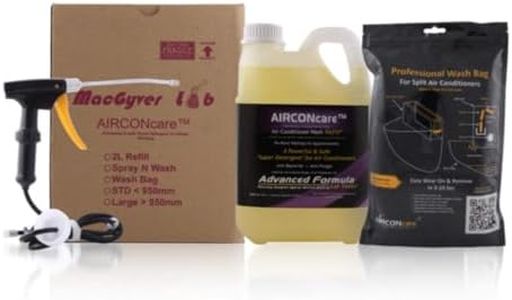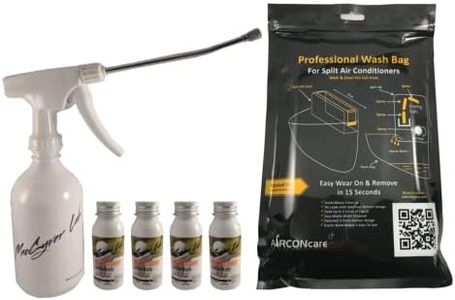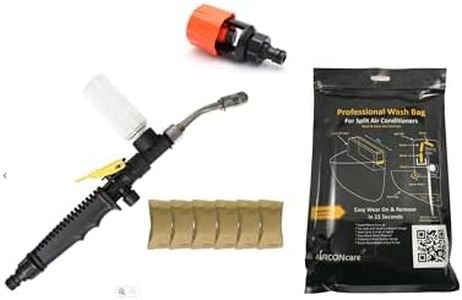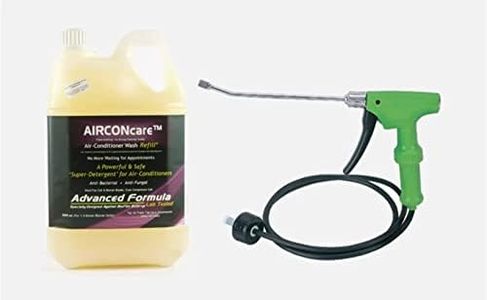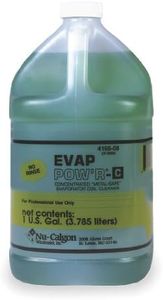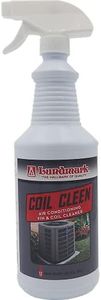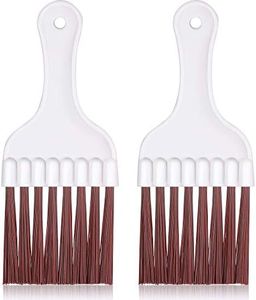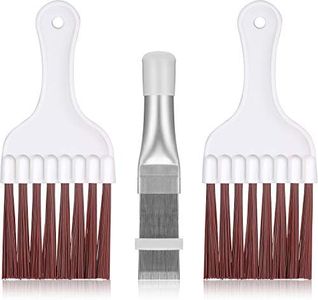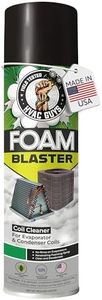We Use CookiesWe use cookies to enhance the security, performance,
functionality and for analytical and promotional activities. By continuing to browse this site you
are agreeing to our privacy policy
10 Best Air Conditioner Coil Cleaners
From leading brands and best sellers available on the web.By clicking on a link to a third party's website, log data is shared with that third party.
Buying Guide for the Best Air Conditioner Coil Cleaners
Choosing the right air conditioner coil cleaner is essential for maintaining the performance and longevity of your AC unit. Clean coils help your air conditioner run efficiently, save energy, and improve indoor air quality. When looking for a coil cleaner, think about your type of air conditioning system, how often you plan to clean it, and whether you prefer a quick rinse or a foaming action for deeper cleaning. Understanding the main features will help you pick the best product for your needs and ensure safe, effective maintenance.Type of Cleaner (Foaming vs. Non-Foaming)The type of cleaner refers to whether the product produces foam when applied or stays as a liquid. Foaming cleaners expand to cover more surface area and can help lift dirt and debris from the coils, making them easier to rinse off. Non-foaming cleaners are typically sprayed directly and wiped or rinsed shortly after. If your coils are heavily soiled or you want a deeper clean, a foaming cleaner may be more effective. For regular, lighter maintenance, a non-foaming option will usually suffice.
Rinse Requirement (Self-Rinsing vs. Rinse Required)Some coil cleaners are self-rinsing, meaning they use condensation from the AC or natural airflow to wash away residue, while others require you to spray the coils with water after applying. Self-rinsing products are convenient for indoor units or places where rinsing with water is difficult. If you have easy access to the coils and proper drainage, rinse-required cleaners often provide a more thorough clean since you can flush away loosened debris.
Chemical StrengthChemical strength describes how strong the cleaning solution is. Heavy-duty cleaners can remove stubborn grime and grease but may be harsher on sensitive coil materials and require careful handling. Mild or 'safe' formulas are gentler and typically designed for regular maintenance. If you clean your coils frequently or are concerned about possible damage to fins or the environment, choose a milder cleaner. For long-neglected or especially dirty coils, a stronger cleaner might be necessary, but follow all safety instructions closely.
Safety (Corrosiveness and Fume Levels)Safety refers to how likely the cleaner is to harm you, the coils, or the surrounding area. Some cleaners are corrosive and release strong fumes, requiring you to use gloves, goggles, and good ventilation. Others are labeled non-toxic or biodegradable, making them better for frequent use and safer for homes with children or pets. Consider where you'll use the cleaner, who might be around, and your own comfort with chemicals when making your choice.
Application Method (Spray Bottle vs. Aerosol vs. Concentrate)Application method describes how the cleaner is delivered. Aerosols are easy to use and often provide even coverage with little effort. Spray bottles are also convenient and allow for targeted application, especially in tight spaces. Concentrated cleaners must be diluted with water before use, making them more economical but requiring more preparation. Choose the one that matches your cleaning style and access to the coils—easy sprays for quick jobs, or concentrates for more frequent or bulk cleaning.
Suitability for Coil MaterialNot all coil cleaners are safe for every type of metal or finish. Some products are made for aluminum coils, while others can handle copper or mixed-metal coils. Using the wrong cleaner may cause discoloration or corrosion. Check what your AC coil is made of before purchasing and always select a compatible cleaner. If unsure, look for products labeled as multi-compatible or safe for all coil types.

